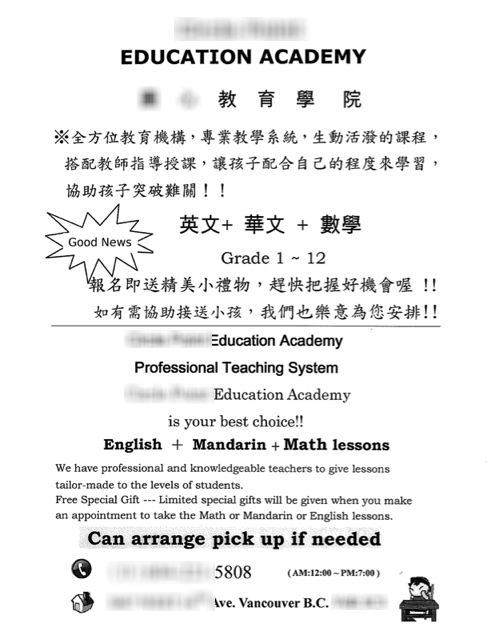I recently had long conversations with Janice Aurini (Waterloo Univ) and Scott Davies (McMaster Univ) with whom I had organized a workshop on the worldwide growth of supplementary education in June 2010.
One of the topics we focused some speculative conversation on was scenarios of a lack of world-wide growth of supplementary education. In other words, looking at the past 15 years, the trend has clearly been to ever more and more important supplementary education whether at a high level of intensity (e.g. Japan, Greece, etc.) or at a low level of intensity (e.g. Canada, Germany, etc.). Under what conditions could we imagine a departure from that trend?
Massive economic crises are obviously one scenario. Given the for-profit and for-fee nature of much of supplementary education, some kind of global crises – financial, military, environmental, demographic – would obviously put a squeeze on supplementary education.
Changes in education itself might also rob supplementary education of its basis. If we continue to see a transformation of education into human resource and skill acquisition (as opposed to erudition and high culture or less concrete and concretely measurable skills like critical analysis) that would suggest that supplementary education will have an important role to play. But it is not entirely unimaginable that that particular pendulum might also swing the other way. If innovation and technological inventions continue to drive a global economy that might be less organized around cheap, but rather around high quality and innovative, then different kinds of education might also come to the fore.
Likewise, if there is some kind of recognition of a particular harm that hypereducation does to children and thus to society, there may be a push back against testable knowledge. Demographic developments could hasten such a push. There are few general (empirical) laws in the social sciences, but more formal education seems to mean lower fertility among women (probably correlation not causality). If that suggests a globally declining fertility, I could imagine scenarios where childhood and child-rearing are reconsidered on a fundamental scale, though this is a distant scenario, obviously.
On the national level (pick any nation), the lack of regulation of supplementary education obviously holds some risks. There was a case of child abuse in Kyoto some years ago that prompted the installation of CCTV cameras in many juku. While this response seems to have calmed fears among Japanese parents, it does not seem far fetched that similar scandals might break out elsewhere and erode the confidence in unregulated supplementary education.
Supplementary education may also become a victim of its own success. Some of the scenarios talked about in Japan, most notably suggestions to allow juku to become alternative schools of some kind, replacing, rather than supplementing state-recognized schools, suggest the possibility of an incorporation or co-optation into the formal education sector.
Emerging practices of state-recognition of supplementary education through No-Child-Left-Behind in the U.S., the Hartz IV Bildungspaket in Germany, tax deductions in France, or the emergence of 校内塾 in Japan suggest that some version of incorporation is a very real possibility. While this could be viewed as a triumph or success of supplementary education, it would also spell the possible end of its supplementary character.
More scenarios for a halt to the global rise of supplementary education surely exist, I would be delighted to hear suggestions along these lines via comments.


